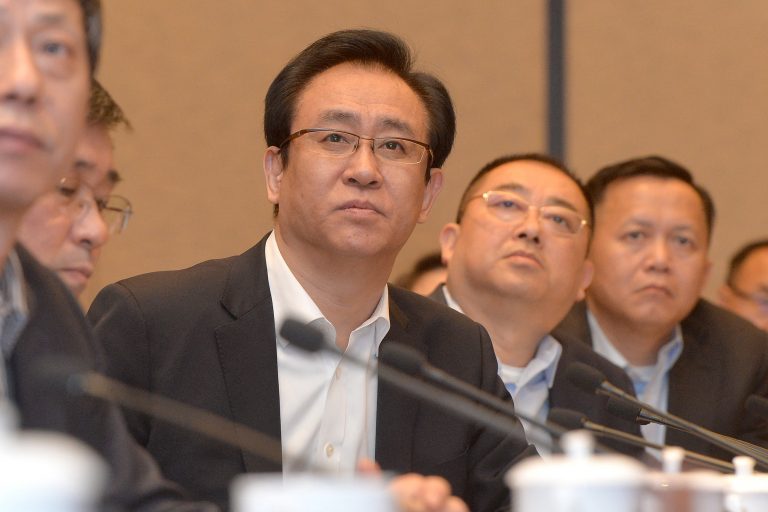Chinese authorities have asked the founder of Evergrande, billionaire Hui Ka Yan (also known as Xu Jiayin), to tap into his personal wealth to pay back some of the debts of the company. Evergrande has more than $300 billion in liabilities and is one of the most indebted companies in the country. The real estate developer is struggling to pay back loans, triggering widespread concerns of a looming debt default.
Beijing’s instructions to Hui came after Evergrande failed to meet its Sept. 23 obligations on a dollar bond. “Local governments across China are monitoring Evergrande’s bank accounts to ensure company cash is used to complete unfinished housing projects and not diverted to pay creditors,” sources told Bloomberg. Hui and his wife control 77 percent of Evergrande through an entity located in the British Virgin Islands.
As of October, Hui had an estimated net worth of $8.21 billion, which makes him the 315th richest man in the world. In 2017, his net worth was estimated at $42 billion. Some have pointed out that Hui’s $8 billion wealth is not enough to meet Evergrande’s $300 plus billion bill.
However, the CCP seems to be focused on sending a message. President Xi Jinping has been cracking down on the country’s billionaire class, pushing forward his “common prosperity” campaign which aims to reduce the wealth gap in society.
According to Alex Payette, chief executive of Montreal-based consultant Cercius Group, by focusing on the extravagance of billionaires, the CCP can strengthen the case for the party’s stronger presence in society. Some sections of the population already hold a negative sentiment towards Hui and his company.
Success
You are now signed up for our newsletter
Success
Check your email to complete sign up
“Because Evergrande lifted home prices… houses here now cost as much as 3,000 yuan to 6,000 yuan [per square meter]. Ordinary people cannot afford them,” one person from Zhoukou, where Hui’s home village is situated, told Nikkei Asia. Residents have also been critical of Hui’s family members for their flamboyant lifestyle.
Despite mounting financial difficulties, Hui has maintained a positive stance, expressing hope that the company can make it through the crisis. “I believe Evergrande can walk out of the darkest hour through the endeavor of our management and employees… We will hold on our spirit against all hardships, trying our best to fulfill our social responsibilities,” the letter said.
Meanwhile, Evergrande has restarted a few of its projects in an attempt to bring some sort of stability to the company’s operations. In a statement posted on WeChat, Evergrande said that the company will ensure completion of the buildings and make an “all-out effort” to adhere to the government’s requirements. In the past few months, many real estate projects had been halted as the firm failed to pay its contractors and suppliers.
“The statement aimed to trigger an upbeat mood about Evergrande’s outlook… Its homebuyers, creditors, and shareholders may have seen a ray of hope after the project resumption but the company will still be struggling with upcoming default tests,” Ding Haifeng, a consultant at Shanghai-based financial advisory firm Integrity, told the South China Morning Post (SCMP).
On Oct. 26, Evergrande’s shares trading on the Hong Kong Stock Exchange plunged, closing four percent lower. Investors are said to be concerned about the company’s upcoming dollar bond payment on Oct. 29 that was originally due in September. Just last week, Evergrande narrowly pulled itself out of default after paying interest on offshore bonds a month after they turned due.














